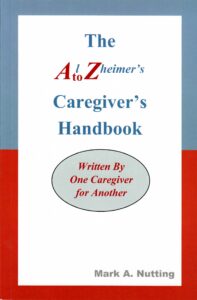Some people who have contracted COVID-19 have a much longer recovery time, even when considered “recovered.” One of the troubling long-term effects of the virus is cognitive complications. This includes memory loss and what some call “brain fog.” Much more time needs to pass to have significant documentation to support this; however, there are many articles to suggest that people who contract COVID-19 have many longer-term neurological challenges.
One of the reported experiences is loss of taste and smell. Some have reported olfactory and gustatory hallucinations as a long-term effect of the virus. Hallucinations are defined as false sensory perceptions, such as, visual, smell or olfactory, taste or gustatory, auditory, and touch or tactile. There are certain neurological responses that occur to fight the virus. There are neuroimmune cells that are activated in the brain as a person’s immune response. This is most likely why people who already have auto-immune disorders have a much harder recovery.
The neuroimmune cells are in the synapses of the brain cells and when activated, inflammatory signals are created. Inflammatory signals create microglia, which is essentially the liver of the brain filtering out toxins. However, in doing so, they may also damage connections responsible for memory. There are many medical conditions which may lead to developing Alzheimer’s Disease and Vascular Dementia, such as, Diabetes, Heart Disease, Inflammatory Disease, Pulmonary Disease, and others. It remains to be seen if there will be a correlation between contracting COVID-19 and the development of a major neurocognitive disorder. As defined by the CDC, subjective cognitive decline is when a person is self-reporting issues with confusion and memory. Cognitive issues can have an overwhelming impact on a person’s overall health and well-being. This negatively impacts a person’s ability to recover from COVID-19 and manage other chronic diseases.
Inflammation results in the body and brain of the person diagnosed with COVID-19. Children who have been diagnosed with COVID-19 have also been diagnosed with Multi-system Inflammatory Syndrome. There is both good and bad to inflammation. The good is in the short term. It helps our bodies to repair and heal. Chronic inflammation is bad leading to major disease. As defined by the CDC, subjective cognitive decline is when a person is self-reporting issues with confusion and memory.
We all hear how important living a healthy lifestyle is. It truly is the ammunition one needs to combat COVID-19 and other diseases. We can decrease inflammation through eating a healthy diet. The Mediterranean diet and the DASH diet have higher inclusions providing Omega 3 – Fatty Acids which lower the signals for inflammation. The prevalence of chronic disease and memory loss increases with age. We must take control of our own lifestyles to assist in prevention. Smoking, alcohol abuse, poor diet, poor sleep, decreased socialization all contribute to these chronic conditions. My hope is to educate people on knowing they do have control on the way they live their life in order to decrease the risk of developing a major neurological disorder such as Alzheimer’s Disease and other dementia.







